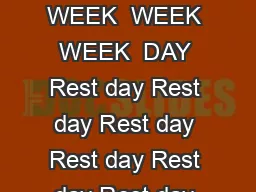PPT-Open Access Week 2014: What You Need to Know
Author : conchita-marotz | Published Date : 2017-07-02
OSCP MunchLunch amp Learn 16 October 2014 John Barnett Scholarly Communications Librarian CC BY 30 Whats New in OA 2014 On the local national and international
Presentation Embed Code
Download Presentation
Download Presentation The PPT/PDF document "Open Access Week 2014: What You Need to ..." is the property of its rightful owner. Permission is granted to download and print the materials on this website for personal, non-commercial use only, and to display it on your personal computer provided you do not modify the materials and that you retain all copyright notices contained in the materials. By downloading content from our website, you accept the terms of this agreement.
Open Access Week 2014: What You Need to Know: Transcript
Download Rules Of Document
"Open Access Week 2014: What You Need to Know"The content belongs to its owner. You may download and print it for personal use, without modification, and keep all copyright notices. By downloading, you agree to these terms.
Related Documents














